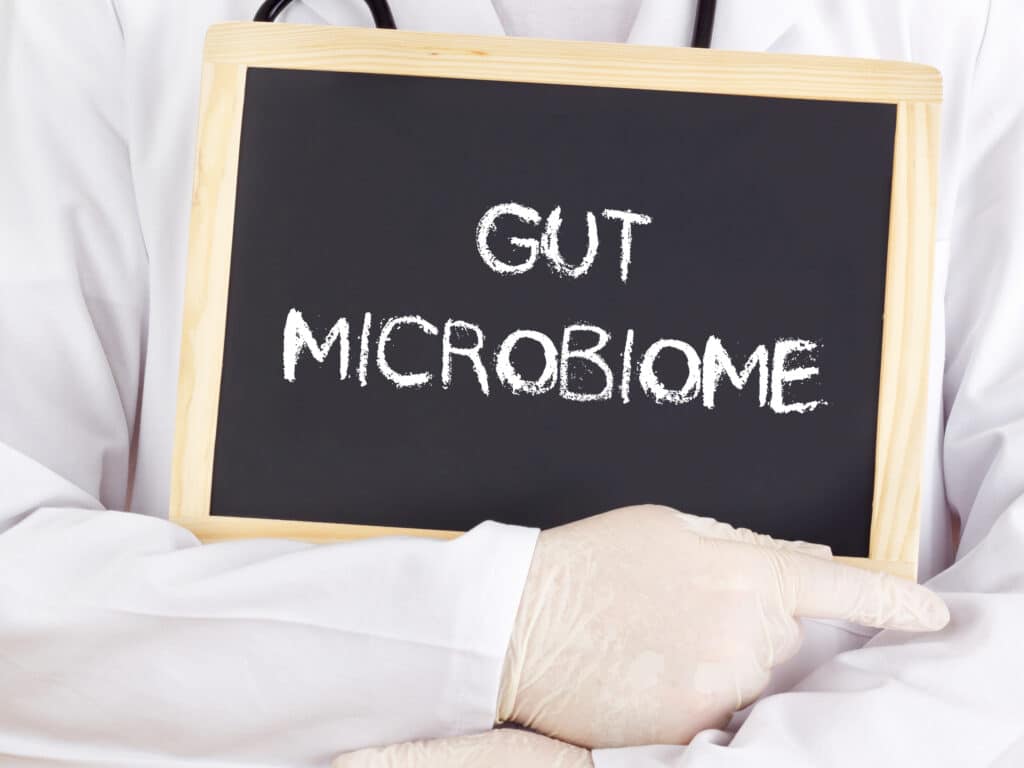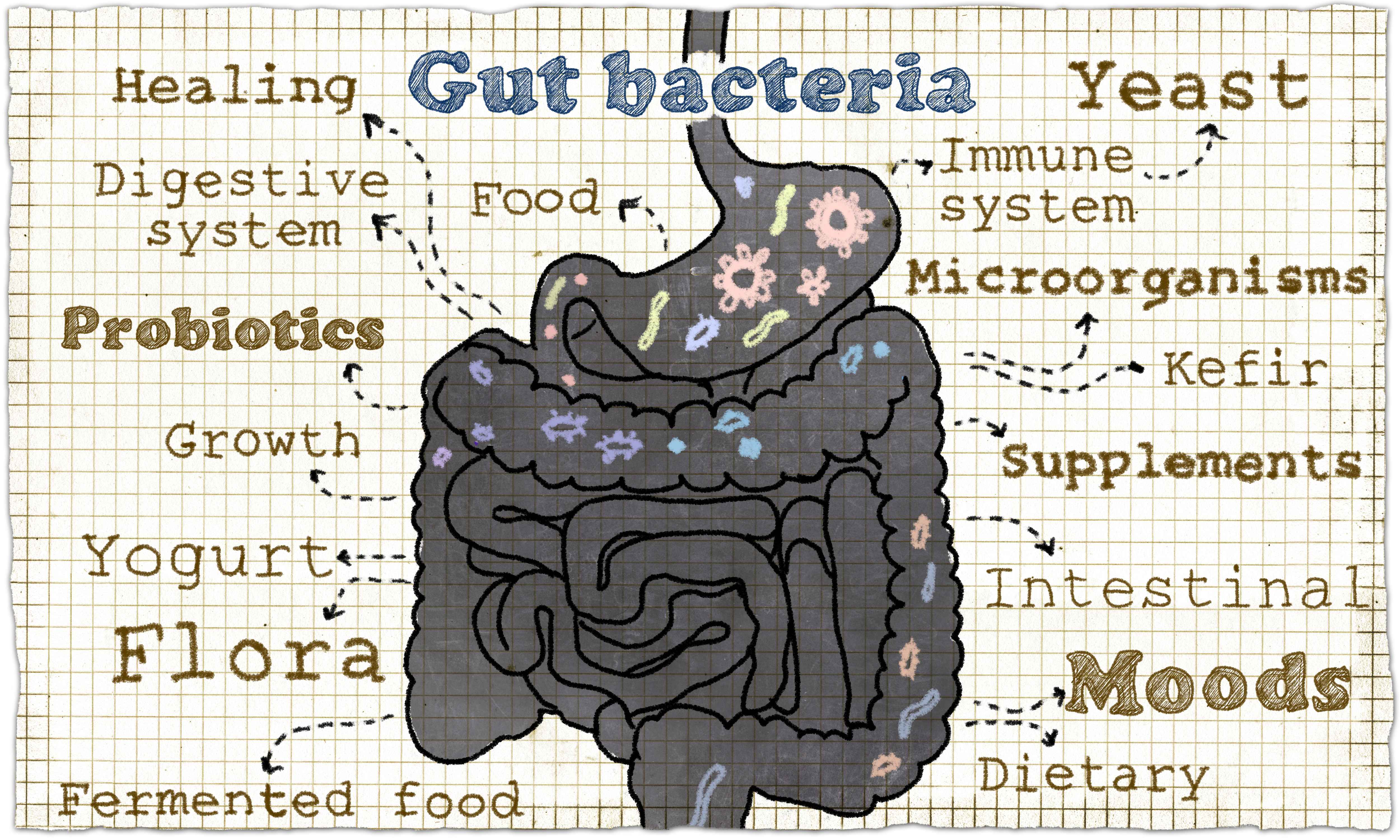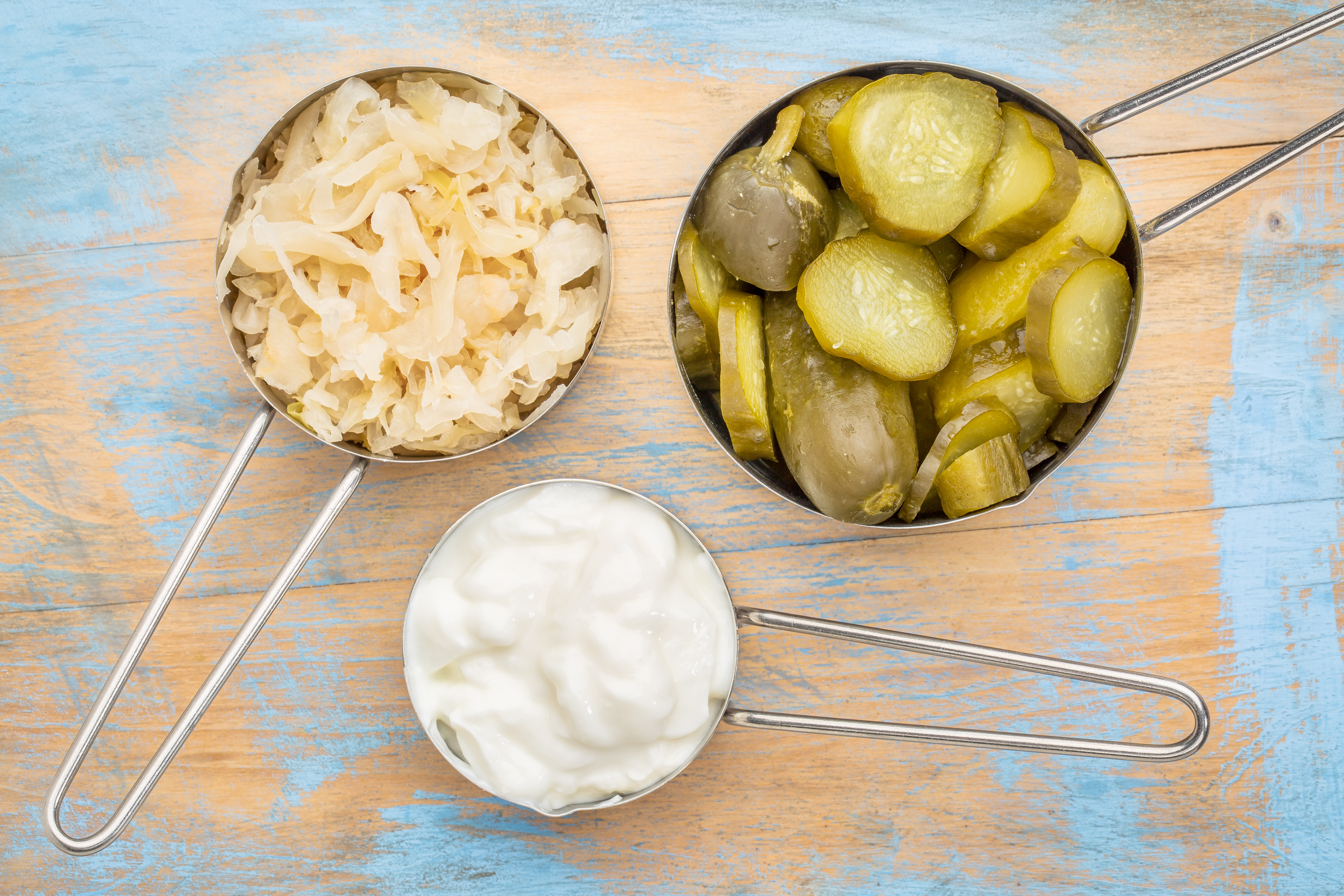

Once upon a time in a bustling city named “Metropolis,” there lived a woman named Sarah. Sarah was a jovial, spirited individual who loved life and embraced it in its every form. But amidst her daily bustles, there was one struggle that seemed to persistently tug at the edges of her contentment: her weight.
“I just don’t get it,” Sarah exclaimed, sitting in her favorite armchair, her eyes fixed on the cityscape outside her window. “I’ve tried everything – yoga, Zumba, keto, even that weird cabbage soup diet!”
Her friend, Jenny, a nutritionist with a kind demeanor and a knowing smile, looked at her sympathetically. “Sarah, there’s a lot more to weight loss than just diet and exercise.”
Sarah turned her gaze towards Jenny, her eyebrows arched in disbelief. “More? You mean, I have to do more than sweating my soul out at the gym and turning down my favorite ice cream?”
Jenny chuckled, shaking her head. “No, no. It’s not about doing more. It’s about understanding more. You see, our bodies are complex ecosystems. They’re not just influenced by what we eat or how much we move. One crucial aspect that many overlook is our microbiomes.”
“Micro-what?” Sarah asked, her brows furrowed in confusion.
“Microbiomes,” Jenny repeated. “Think of them as tiny, invisible creatures living inside us, especially in our guts. They play a huge role in our health, including our weight.”
A silence hung in the room as Sarah processed this new information. Her face gradually lit up with understanding and curiosity. “So, you’re saying these little creatures could be the reason I’m struggling with weight loss?”
“Possibly,” Jenny nodded. “It’s a fascinating area of research that’s unfolding. Why don’t you read about it? It might provide you with a new perspective.”
Sarah, eager to learn more about these unseen allies (or possible foes) within her, agreed. She began her journey of discovery, not knowing how profoundly it would change her understanding of her body and its relationship with weight loss.
And that brings us to the topic of today’s blog post: “Microbiomes and Your Weight Loss.” As our friend Sarah begins her journey of understanding the intricate relationship between microbiomes and weight loss, why don’t you join her too? Let’s delve into this fascinating subject together, and perhaps, like Sarah, we can find new avenues to health and well-being that were previously unexplored.
Continue reading below…

Microbiome weight loss is a fascinating and emerging field of study, offering promising insights into how your gut bacteria can influence your ability to shed unwanted pounds. Busy people, such as yourself, must be knowledgeable about the science behind microbiome weight loss to make informed choices for your wellbeing.
We’ll delve deep into the role of microbiomes in weight loss by exploring their impact on metabolism and energy balance. We’ll also discuss how analyzing your fecal matter can lead to personalized strategies for effective weight management.
Furthermore, we’ll provide actionable lifestyle tips that promote healthy weight loss through whole food plant-based diets and exercise routines. Additionally, you’ll learn about resistance training as a means for overall health improvement while addressing micronutrient deficiencies and hormone imbalances that may be hindering your progress.
Finally, discover the Vibrant Weight Loss Package – a comprehensive solution designed specifically for individuals facing unique challenges in their journey towards achieving optimal gut health and sustainable microbiome weight loss success.
Are you super busy but need to take control of your health? Are you tired of being tired? Subscribe to my “Minimize Medications, Maximize Health Blog” and I’ll give you 7 Tips to Get Healthy in No Time absolutely FREE.
Minimize Medications. Maximize Health.
You have Successfully Subscribed!
The Role of Microbiomes in Weight Loss
Have you ever wondered why some people seem to shed pounds effortlessly while others struggle despite their best efforts? Well, the answer might lie within your gut – specifically, in your microbiome. Your microbiome, a bustling community of bacteria residing in your digestive system, plays a critical role not only in digestion but also overall health. Recent research has revealed intriguing connections between the composition of our gut microbiota and weight loss success. In this section, we’ll explore how cultivating an awareness of your individual microbiome can help you reach our weight loss goals.
Why Your Gut Microbiome is Key to Weight Loss
If you’re looking to lose weight, it’s important to understand the role that your gut microbiome plays in achieving and maintaining a healthy weight. The gut microbiome refers to the trillions of microorganisms that live in your digestive tract, including bacteria, viruses, fungi, and other microbes.
The Link Between Gut Microbes and Weight Management
Research has shown that certain types of gut bacteria can affect how much energy we extract from food and how efficiently our bodies store fat. For example:
- Studies have found that people with obesity tend to have different types of gut bacteria than those who are lean.
- A lack of dietary fiber can lead to an imbalance in the gut microbiome, which may contribute to weight gain.
- Short-chain fatty acids (SCFAs), produced by some types of beneficial bacteria during fermentation of dietary fiber, help regulate metabolism as well as reduce inflammation throughout the body.

How Gut Bacteria Influence Metabolism and Energy Balance
Your gut is home to trillions of bacteria that help break down food and extract nutrients from it. These microscopic residents are involved in various metabolic processes such as converting carbohydrates into short-chain fatty acids (SCFAs) or regulating bile acid metabolism. The balance between different bacterial species can significantly impact energy extraction efficiency from consumed foods and consequently influence body weight.
A study published by Nutrition Today found that certain strains of gut bacteria could increase fat storage while others promote leanness. This suggests that having more “lean-promoting” microbes may be advantageous for those looking to lose weight effectively.
The Link Between Poop Analysis and Personalized Weight Loss Strategies
You read that right. Analyzing your poop might hold the key to unlocking personalized strategies for successful weight loss. By examining fecal samples’ microbial content, researchers can gain insights into an individual’s unique gut microbiome composition. This information can then be used to tailor dietary interventions and probiotic supplementation for optimal weight loss results.
For example, a study published in the Gastroenterology showed that participants who received personalized dietary advice based on their gut microbiota profiles lost more weight than those following standard guidelines. So, it seems that getting up close and personal with your poop might just help you shed those stubborn pounds.
Dietary Changes for a Healthy Gut
To promote a healthy balance of gut microbes for weight loss or management, try these tips:
- Increase intake of plant-based foods such as fruits, vegetables, and whole grains, as they provide plenty of prebiotic fibers needed by good bacteria.
- Foods rich in probiotics like yogurt, kimchi, sauerkraut, kefir, etc. can help replenish the gut with good bacteria.
- Adopting a Mediterranean-style diet rich in healthy fats like olive oil and nuts has been linked to a healthier gut microbiome.

Fecal Microbiota Transplantation (FMT)
In some cases, fecal microbiota transplantation may be recommended for people with certain conditions that affect the gut microbiome, such as recurrent C. difficile infection or IBD. This procedure involves transferring stool from a healthy donor into the colon of an individual who is experiencing dysbiosis within their own digestive tract.
In recent years, fecal microbiota transplantation (FMT) has emerged as a potential treatment option for obesity. This follows the same process where stool is transferred from a healthy donor into the gastrointestinal tract of an individual with an imbalanced or unhealthy gut microbiome.
- This study suggests FMT could help reduce body mass index (BMI) and improve metabolic health markers like glucose tolerance and insulin resistance.
- Another article explains how researchers believe FMT could be used to treat obesity and metabolic disorders by restoring a healthy gut microbiome.
The role of microbiomes in weight loss is an important factor to consider when designing personalized strategies for successful and sustainable weight management. By making simple lifestyle changes, such as a whole food plant-based diet and exercise, we can further leverage the power of our gut bacteria to support healthy long term results.
To sum up, understanding the role of your microbiome in weight management is essential for achieving lasting success. By nurturing a diverse and balanced community of gut bacteria through diet and targeted supplementation, you may unlock powerful allies in your quest towards better health. In the following, we’ll explore lifestyle modifications needed to help sustain healthy weight loss – since ultimately, no amount of “good bacteria” can substitute for bad dietary choices or a lack of physical activity.
Key Thought:
Understanding and nurturing your unique microbiome can give you an edge on your weight loss journey. Gut bacteria influence metabolism and energy balance, with certain strains promoting leanness while others increase fat storage. Analyzing fecal samples’ microbial content can provide insights into personalized dietary interventions for optimal weight loss results.
Lifestyle Changes for Healthy Weight Loss
Let’s face it, dietary supplements alone won’t magically melt away those pesky pounds. To achieve successful weight loss and enhance overall health, you need to make significant lifestyle changes. This includes adopting a whole food plant-based diet and engaging in regular physical activity.
The Role of Diet in Gut Health and Weight Loss
A balanced diet that includes plenty of fiber-rich fruits and vegetables is essential for maintaining a healthy gut microbiome.
The Mediterranean diet, which emphasizes whole foods like fish, nuts, olive oil, and fresh produce has been shown to promote the growth of beneficial bacteria in the gut. Additionally, limiting processed foods and added sugars can help reduce inflammation in the body – another key factor in weight management.
Incorporating prebiotic or probiotic supplements may also be helpful for some individuals looking to optimize their gut health while losing weight. However, more research is needed to fully understand how these supplements impact weight loss specifically.
Whole Food Plant-Based Diet Benefits for Weight Management
A whole food plant-based diet focuses on consuming natural, unprocessed foods such as fruits, vegetables, legumes, nuts, seeds, and whole grains. Not only is this way of eating deliciously satisfying (hello avocado toast), but it also offers numerous benefits for weight management:
- Nutrient-dense: Whole plant foods are packed with essential vitamins and minerals that support healthy metabolism and energy levels.
- Fiber-rich: Fiber helps keep you full longer while promoting good digestion – a win-win situation when trying to shed some pounds.
- Lowers calorie density: By replacing high-calorie processed foods with nutrient-rich plants, you can enjoy larger portions without overloading on calories.
- Promotes gut health: A diverse array of plant fibers feeds your gut microbiome which plays a crucial role in maintaining optimal body weight (more on that later).

The Importance of Exercise in Achieving Sustainable Weight Loss
It’s often said that “you can’t outrun a poor diet,” yet don’t underestimate the potency of exercise. Regular physical activity not only promotes sustainable weight loss, but also enhances overall health. Here’s why:
- Burns calories: Exercise helps create a calorie deficit, which is essential for weight loss.
- Boosts metabolism: Regular physical activity increases your metabolic rate, helping you burn more calories even at rest (score!).
- Improves mood and reduces stress: Physical activity releases feel-good endorphins that can help curb emotional eating and keep stress-induced cravings in check.
- Promotes muscle growth: Building lean muscle mass through exercise not only gives you that toned look but also further boosts your metabolism.
To reap the benefits of exercise, aim for at least 150 minutes of moderate-intensity aerobic activities or 75 minutes of vigorous-intensity workouts per week. Don’t forget to include strength training exercises targeting all major muscle groups twice weekly. Need some inspiration? Check out these awesome resources from the American Heart Association on how to get started with an effective workout routine:
Incorporating healthier habits such as consuming whole food plant-based diets and engaging in regular physical activity will not only improve your chances of losing weight but also enhance overall health – making it a no-brainer when striving towards sustainable weight loss success.
If you’re looking to lose weight or improve your overall health through lifestyle changes such as exercise or dietary modifications, it’s important not to overlook the role your gut microbes play! Incorporating regular physical activity into your routine along with a well-balanced diet rich in fiber can have positive effects on both your waistline and digestive system. And if you’re struggling with chronic conditions related to an unhealthy microbiome, don’t hesitate to reach out for professional advice!
Making small, sustainable lifestyle changes is key to achieving healthy weight loss. Exercise with resistance training can be a great way to further improve overall health and wellness in addition to diet modifications.
Key Thought:
To achieve successful weight loss, significant lifestyle changes are necessary such as adopting a whole food plant-based diet and engaging in regular physical activity. A fiber-rich, nutrient-dense diet promotes gut health while exercise helps create a calorie deficit, boosts metabolism, improves mood and reduces stress.
How Does Exercise Change the Gut Microbiome for Weight Loss?
If you’re looking to lose weight, it’s important to understand that your gut microbiome plays a crucial role in this process. The gut microbiota is made up of trillions of microorganisms that live in your digestive tract and affect everything from your immune system to how efficiently you digest food.
The Connection Between Exercise and the Gut Microbiome
Research has shown that exercise can have a positive impact on the diversity and abundance of beneficial bacteria in the gut. In fact, one study found that athletes had higher levels of certain strains of bacteria associated with improved metabolism compared to sedentary individuals.
Incorporating regular physical activity into your routine can help increase the number of beneficial bacteria in your gut, which can aid in weight loss efforts. Additionally, exercise has been shown to improve insulin sensitivity and reduce inflammation – both factors that contribute to obesity.
This may be due, at least in part, to short-chain fatty acids (SCFAs), which are produced by some types of gut microbes when they break down dietary fiber. SCFAs have been linked to improved insulin sensitivity and reduced inflammation – both factors that can contribute to weight loss.
Dietary Fiber and Short-Chain Fatty Acids
Dietary fiber is essential for maintaining a healthy gut microbiome. When we consume dietary fiber, our gut microbes ferment it into short-chain fatty acids (SCFAs), which provide energy for our cells.
Regular exercise with resistance training has been linked with increased production of SCFAs, as well as improved absorption of these compounds by the body. This means that incorporating both dietary fiber-rich foods like fruits, vegetables, whole grains, and legumes along with regular physical activity will promote better health outcomes than either intervention alone.

Resistance Training for Overall Health Improvement
Incorporating resistance training into your fitness routine has numerous advantages beyond just aiding with fat burning or muscle building; it’s essential for maintaining overall well-being too. This type of workout helps prevent chronic diseases while improving cardiovascular function among other things – making it an integral part when striving towards healthy body goals during any stage throughout life.
Benefits of Resistance Training on Metabolic Rate
You might be astonished to find out that doing strength exercises can enhance your metabolic rate, which is a critical element in controlling weight. By increasing lean muscle mass, you’re essentially turning your body into a calorie-burning machine even at rest. RMR (Resting Metabolic Rate) goes up when you have more muscles.
- Muscle burns calories: For every pound of muscle gained, you’ll burn approximately 50 extra calories per day.
- Fat loss and preservation: Resistance training promotes fat loss while preserving precious lean tissue – helping maintain optimal health and functionality as we age.
- Better insulin sensitivity: Improved glucose control through strength workouts reduces the risk of developing type-2 diabetes by enhancing insulin sensitivity within our cells themselves.
How Strength Exercises Contribute to Long-term Wellness
Apart from its direct impact on weight loss, incorporating resistance training offers several additional benefits that contribute to long-term wellness. Let’s explore some reasons why this form of exercise should become a staple in your fitness regimen:
- Bone density improvement: Lifting weights can increase bone mineral density, reducing the risk of osteoporosis and fractures as we age.
- Enhanced immune system: Regular strength training has been shown to boost your body’s natural defense mechanisms, keeping you healthier in general by warding off infections and diseases more effectively.
- Mental health benefits: Resistance workouts have a positive impact on mental well-being, helping combat stress, anxiety, and depression while promoting better sleep quality at night too.
- Injury prevention: A strong musculoskeletal system provides greater stability for joints which reduces the likelihood of injuries during everyday activities or other forms of exercise like running, cycling, etc. – making it an essential aspect when aiming towards maintaining overall good health throughout your lifetime.
For those unfamiliar with resistance training, seeking guidance from a certified personal trainer to design an individualized program is recommended for optimal results. Alternatively, there are plenty of online resources available such as instructional videos (Fitness Blender) that demonstrate proper form/technique along with various exercises suitable for all fitness levels – ensuring everyone gets access regardless of their current experience/expertise.
To sum up, incorporating resistance training into your lifestyle not only aids weight loss efforts but also contributes significantly towards improving overall health outcomes across multiple domains simultaneously. So why wait any longer? Grab those dumbbells today and let’s get started right away.
Resistance training is a powerful tool for improving overall health, and by incorporating dietary changes to address nutrient deficits and hormone imbalances, we can further advance our efforts towards successful weight reduction. By identifying common micronutrient deficiencies and their impact on weight loss, we can develop strategies for correcting any hormonal imbalances that may be hindering our progress.
Key Thought:
Incorporating resistance training into your fitness routine can improve overall health by preventing chronic diseases and improving cardiovascular function. Strength exercises also boost metabolism, promote fat loss while preserving lean tissue, enhance insulin sensitivity, increase bone density, boost the immune system, have mental health benefits and prevent injuries.
Addressing Micronutrient Deficiencies & Hormone Imbalances
Losing excess weight becomes even more challenging if there are micronutrient deficiencies present in our bodies. These deficiencies cause hormone imbalances that affect mood swings, appetite control, and stress levels, all of which play major roles in weight loss. To ensure optimal functioning from every aspect possible, both physically and mentally/emotionally speaking, make sure proper nutrition intake remains a high priority alongside regular exercise routines.
Identifying Common Micronutrient Deficiencies and Their Impact on Weight Loss
The first step to overcoming weight loss obstacles is identifying any potential micronutrient deficiencies. Some common ones include:
- Vitamin D: Low levels can lead to fatigue, depression, and a weakened immune system. It also plays a role in regulating hunger hormones like leptin.
- Magnesium, a vital mineral for managing blood sugar levels, aiding muscle function and diminishing inflammation, is essential for optimal health. A deficiency may contribute to insulin resistance and increased cortisol production.
- Iodine: Crucial for thyroid function, iodine deficiency can slow down metabolism leading to weight gain or difficulty losing weight.
- B vitamins: These nutrients help convert food into energy; inadequate amounts may result in a sluggish metabolism or low energy levels that hinder your ability to burn calories effectively.
To identify these deficiencies accurately, consider consulting with a healthcare professional who specializes in functional medicine for comprehensive testing of nutrient status. Once you know where the gaps lie, it’s time to address them through dietary changes or supplementation as needed.
Strategies for Correcting Hormone Imbalances Through Nutrition
Now that you’ve identified any micronutrient deficiencies, let’s focus on correcting hormone imbalances through nutrition. Here are some strategies to help:
- Eat a balanced diet: Consuming a variety of nutrient-dense foods can provide the necessary vitamins and minerals needed for optimal hormonal function.
- Incorporate healthy fats: Omega-3 fatty acids found in fish, nuts, and seeds play an essential role in reducing inflammation and supporting hormone production.
- Maintain blood sugar levels: Avoid processed sugars or refined carbohydrates that cause spikes in insulin; instead, opt for complex carbs like whole grains, fruits, and vegetables which release energy slowly into your bloodstream.
- Add more fiber to your meals: Fiber helps regulate hormones by slowing down digestion and promoting stable blood sugar levels. Eat lots of produce, beans, and whole grains in your diet.
Apart from these dietary changes, don’t forget about stress management. High cortisol levels due to chronic stress can wreak havoc on our hormones leading to weight gain or difficulty shedding pounds. Consider incorporating relaxation techniques such as meditation or yoga into your routine alongside regular exercise for maximum benefits.
If you’re still struggling with stubborn weight loss despite addressing micronutrient deficiencies and making lifestyle adjustments, fear not. The Vibrant Weight Loss Package might be just what you need (more details coming up next).
Addressing deficiencies in essential nutrients and hormone irregularities can empower active individuals to take charge of their wellbeing holistically. Now let’s explore the Vibrant Weight Loss Package – A Comprehensive Solution to see how it can provide an effective solution for those struggling with weight loss.
Key Thought:
To achieve successful weight loss, it’s important to address any micronutrient deficiencies and hormone imbalances that may be hindering progress. Common deficiencies include vitamin D, magnesium, iodine, and B vitamins; strategies for correcting these imbalances through nutrition include eating a balanced diet with healthy fats and fiber while managing stress levels.
The Vibrant Weight Loss Package – A Comprehensive Solution
If diet and exercise alone aren’t yielding desired results, consider trying the Vibrant Weight Loss Package. This comprehensive program combines personalized dietary guidance with targeted supplementation to address underlying issues that may be hindering your progress towards a healthier body weight while simultaneously improving overall health outcomes.
What’s included in the Vibrant Weight Loss Package?
The Vibrant Weight Loss Package is designed to give you the resources and assistance required for an effective weight loss experience. Here’s what you can expect:
- Micronutrient Testing & Supplementation Recommendations: Identification of any micronutrient deficiencies or hormone imbalances through advanced testing methods followed by targeted supplement recommendations based on test results.
How this package addresses unique challenges faced by individuals struggling with weight loss
The Vibrant Weight Loss Package goes beyond just providing a diet plan; it takes into account various factors that could be affecting your ability to lose weight effectively. Let’s take a closer look at how this comprehensive approach tackles common obstacles encountered during the weight loss process:
- Focusing on Gut Health: A healthy gut microbiome is essential for efficient digestion and nutrient absorption. By incorporating probiotics, prebiotics, and fiber-rich foods into your personalized meal plan, the Vibrant Weight Loss Package helps to optimize your gut health and support weight loss.
- Addressing Micronutrient Deficiencies: As mentioned earlier, micronutrient deficiencies can lead to hormone imbalances that make it difficult to lose weight. Through advanced testing methods included in this package, you’ll be able to identify any deficiencies or imbalances present in your body and receive targeted supplementation recommendations based on those findings.
If you’re ready to take control of your health and achieve lasting results through a comprehensive approach that addresses both physical and emotional aspects of weight management – look no further than the Vibrant Weight Loss Package. Don’t let past failures discourage you; instead, embrace this opportunity for a fresh start supported by results from this package.
Key Thought:
The Vibrant Weight Loss Package includes micronutrient testing, hormone imbalances, and food sensitivity testing. Micronutrients activate genes that regulate hormones. Hormones can affect a wide range of body functions and can contribute to your cravings. What you eat impacts your blood sugar. Blood sugar imbalance and food sensitivities contribute to inflammation. This package includes the tests you need to identify what is preventing you from losing weight.
I would love to give you a free resource sheet to support your healthy weight loss journey. Click the button below to receive your gift.
I really wanted to talk about this topic today because the overweight and obesity epidemic is at an all-time high! We are a fat society and it’s killing us prematurely. Not only do I truly believe that you have the power to lose weight to improve your health, but the science also agrees! You can adopt healthy lifestyle practices that improve your health and enrich your life, which can in turn improve the lives of those close to you. You have the power to break the cycle of obesity so that you can leave a legacy of health to your loved ones.
I use functional medicine and lifestyle medicine as the first line of treatment, before medications, to treat lifestyle-related chronic diseases. Lifestyle-related chronic diseases include diabetes, hypertension, obesity, and some cancers, just to name a few. Lifestyle practices, such as eating a whole-food plant-based diet and regular physical activity, can help you lose weight, and maybe reverse some of your chronic diseases. In certain cases, these approaches may even outperform pharmaceutical therapy.
But I always tell my patients that conventional medications may be appropriate at this time to prevent catastrophic illness, but over time, you can work to make the necessary lifestyle changes to possibly reduce and/or eliminate medications. Please remember to always consult your physician for your particular needs and circumstances prior to making any decisions whatsoever.
Is Dietary Supplementation Right For You?
If you’re like most people, you might think that dietary supplements are a quick and easy way to lose weight. But the truth is, there’s no magic pill when it comes to weight loss. Supplements can help you lose weight by providing your body with the nutrients it needs to function properly, but they won’t work unless you make lifestyle changes as well.
For some people, vitamin and mineral supplements offer important health benefits. Supplements are designed to fight deficiencies found in our diet and complement the food we eat regularly. Supplements are basically “helping hands” to our daily food.
If you suspect that you aren’t getting the nutrients you need, consider shifting your focus from supplements to eating better.
But it is very important to note that we are not eating the same foods we ate years ago because the soils have been depleted of critical nutrients through current industrial farming practices. And because the soil is not as good as it used to be, the food supply (grown from the depleted soil) is not as good as it used to be. For example, you are not getting the same levels of magnesium as you would have gotten 30 or even 50 years ago.
Second, much of the food has been genetically altered, which can impact the inherent and unique nutritional composition that each food possess. For example, ancient einkorn wheat has less gluten, more protein, more Vitamin A, and more beta carotene, than modern genetically modified wheat.
Third, the toxic load in the environment today is much higher than 100 years ago. We can see this with global warming, toxic landfills, polluted oceans and waterways, etc. Toxicity levels interfere with nutrient assimilation and absorption not just into the foods, but into our bodies as well.
So… if you are unable to eat better, the supplements in my Body Composition/Weight Loss Protocol may provide the extra boost you need.
These are my favorite Weight Loss Supplements to use! This Body Composition/Weight Management Bundle will ensure you have the intake of the important vitamins, minerals, and probiotics to decrease inflammation and boost your innate wellness day and night. Taken together, it’s a solid plan for increasing your body’s natural resiliency while you lose weight, naturally.
For best results make sure you use my weight loss supplements with dietary changes including a whole food plant-based diet, regular exercise (at least 2-3x per week), regular sleep (8 hours per night), and intermittent fasting (at least 1-3x per week).
Weight Monitoring
Since weight management is very important in combatting chronic diseases, I recommend that you be mindful of your weight and its fluctuations, and that you monitor your weight AT LEAST on a weekly basis. I recommend a scale that includes a body composition monitor (*this scale cannot be used with a pacemaker or other implanted devices).
Physical Activity
Physical activity (or exercise) can improve your health and reduce the risk of developing several chronic diseases like high blood pressure, type 2 diabetes, and cancer, just to name a few. Physical activity can improve your mood, boost your immune system, and even help you maintain a healthy weight.
I often recommend yoga and resistance training for physical activity, but as you are aware, there are plenty of forms of “movement” that you can do! But for the basics, especially if you’re just getting started, yoga and resistance training are where I would start.
Yoga
Yoga can be a great way to improve your strength and flexibility, manage your stress, improve your heart health, and lose weight! I recommend using a grounded yoga mat to connect yourself with the earth and reduce inflammation.
Resistance Training
Resistance training is the mainstay for overall health. It not only has beneficial effects on reducing body fat, it also increases muscle size and strength. Check out some basic dumbbells/free weights that I recommend to everyone.
Another alternative for dumbbells/free weights are resistance bands. They are great for physical therapy, yoga, strength training, and excellent for traveling.
Remember, living a healthy lifestyle including eating a whole foods plant-based diet, regular physical activity, and reducing stress are the best ways to maintain a healthy weight.
Microbiome Weight Loss FAQs
Yes, the gut microbiome plays a significant role in weight loss by influencing metabolism, energy balance, and nutrient absorption. A diverse and balanced gut microbiota helps maintain a healthy body weight while an imbalanced one may contribute to obesity or difficulty losing weight. Research shows that altering the gut microbiome can impact weight management.
To improve your gut microbiome for better weight management, consider adopting a whole food plant-based diet rich in dietary fiber, prebiotics, and probiotics. Additionally, exercise regularly, manage stress levels through relaxation techniques like meditation or yoga, and get enough sleep. Limiting processed foods and added sugars also supports a healthier gut environment.
The gut microbiome affects your body’s ability to extract calories from food and store them as fat. It also influences hormones related to appetite regulation (such as leptin) which impacts hunger signals received by the brain. Moreover, studies suggest that certain bacteria strains are associated with lean individuals while others are linked with obesity.
Yes, an imbalanced gut microbiome can contribute to obesity. Fecal microbiota transplantation (FMT) has been shown to improve gut health and aid in weight loss. Additionally, a Mediterranean diet rich in dietary fiber and short-chain fatty acids has been linked to a healthier gut microbiome and improved weight management. A healthy gut microbiome also supports a strong immune system.
Final Thoughts
Ultimately, the microbiome is a key factor in successful weight loss. By understanding how gut bacteria influence metabolism and energy balance, you can make lifestyle changes such as adopting a whole food plant-based diet, incorporating resistance training, addressing micronutrient deficiencies, and hormone imbalances to achieve sustainable weight loss.
At Dr. Nicolle’s clinic, we offer the Vibrant Weight Loss Package – a comprehensive solution that addresses unique challenges faced by individuals struggling with weight loss through personalized strategies tailored to their specific needs.
If you’re ready to take charge of your wellbeing and begin a voyage towards Microbiome Weight Loss, make an arrangement with us now!
Dr. Nicolle Martin
Some of the links in this article are "affiliate links", a link with a special tracking code. This means if you click on an affiliate link and purchase the item, we will receive an affiliate commission.
The price of the item is the same whether it is an affiliate link or not. Regardless, we only recommend products or services we believe will add value to our readers.
By using the affiliate links, you are helping support our Website, and we genuinely appreciate your support.
Last updated on May 16th, 2023 at 05:25 pm

Minimize Medications. Maximize Health.
Are you super busy but need to take control of your health? Are you tired of being tired? Subscribe to my “Minimize Medications, Maximize Health Blog” and I’ll give you 7 Tips to Get Healthy in No Time absolutely FREE.








